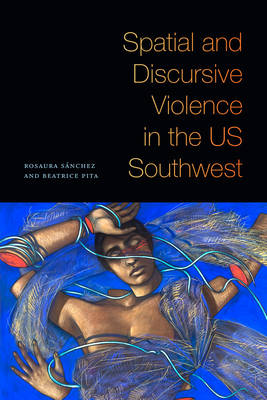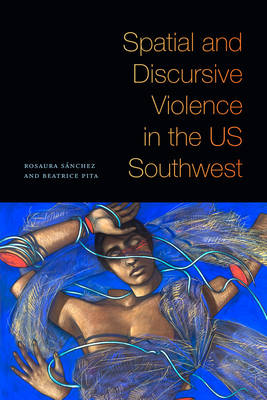
Je cadeautjes zeker op tijd in huis hebben voor de feestdagen? Kom langs in onze winkels en vind het perfecte geschenk!
- Afhalen na 1 uur in een winkel met voorraad
- Gratis thuislevering in België vanaf € 30
- Ruim aanbod met 7 miljoen producten
Je cadeautjes zeker op tijd in huis hebben voor de feestdagen? Kom langs in onze winkels en vind het perfecte geschenk!
- Afhalen na 1 uur in een winkel met voorraad
- Gratis thuislevering in België vanaf € 30
- Ruim aanbod met 7 miljoen producten
Zoeken
Spatial and Discursive Violence in the Us Southwest
Rosaura Sánchez, Beatrice Pita
Paperback | Engels
€ 42,95
+ 85 punten
Uitvoering
Omschrijving
In Spatial and Discursive Violence in the US Southwest Rosaura Sánchez and Beatrice Pita examine literary representations of settler colonial land enclosure and dispossession in the history of New Mexico, Texas, and Oklahoma. Sánchez and Pita analyze a range of Chicano/a and Native American novels, films, short stories, and other cultural artifacts from the eighteenth century to the present, showing how Chicano/a works often celebrate an idealized colonial Spanish past as a way to counter stereotypes of Mexican and Indigenous racial and ethnic inferiority. As they demonstrate, these texts often erase the participation of Spanish and Mexican settlers in the dispossession of Indigenous lands. Foregrounding the relationship between literature and settler colonialism, they consider how literary representations of land are manipulated and redefined in ways that point to the changing practices of dispossession. In so doing, Sánchez and Pita prompt critics to reconsider the role of settler colonialism in the deep history of the United States and how spatial and discursive violence are always correlated.
Specificaties
Betrokkenen
- Auteur(s):
- Uitgeverij:
Inhoud
- Aantal bladzijden:
- 272
- Taal:
- Engels
Eigenschappen
- Productcode (EAN):
- 9781478011736
- Verschijningsdatum:
- 16/04/2021
- Uitvoering:
- Paperback
- Formaat:
- Trade paperback (VS)
- Afmetingen:
- 152 mm x 229 mm
- Gewicht:
- 367 g

Alleen bij Standaard Boekhandel
+ 85 punten op je klantenkaart van Standaard Boekhandel
Beoordelingen
We publiceren alleen reviews die voldoen aan de voorwaarden voor reviews. Bekijk onze voorwaarden voor reviews.









